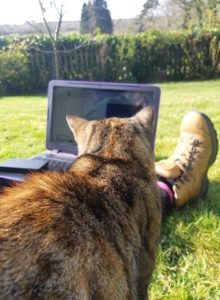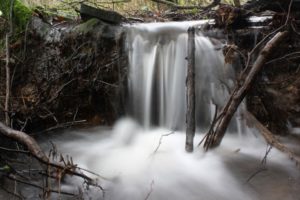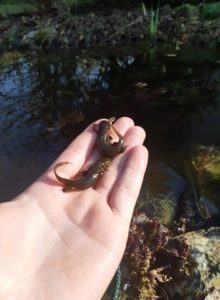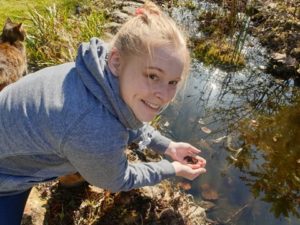Natasha Underwood lets us know how she adapting to her at home placement with us.
As part of my University degree, I was looking forward to the start my placement with the Westcountry Rivers Trust (WRT).
My aim had been to gain experience working within the environmental sector, furthering my skills in data analysis, report writing and getting stuck in with some fieldwork.
After the announcement of the outbreak of COVID-19 in early March and with the situation worsening, I could see that it wasn’t looking good for the placement going ahead as planned. It was decided that the placement would be postponed for now and that the WRT would set some tasks so that I could work from home.
I’m using this quarantine time to develop and enhance skill sets required in the environmental profession. As part of this, WRT has tasked me to create a data summary as an infographic for historical and current water quality data from rivers in the South West.
I have chosen to use Quantum Geographic Information System to visually represent the sampling data taken within the South West, because Geographic Information System (GIS) software is one of the key programs in presenting environmental data that can be easily interpreted by everyone (even the cat).
 For my daily exercise allowance, I take walks by the river where I can practise using the River Habitat Survey method on a mobile app.
For my daily exercise allowance, I take walks by the river where I can practise using the River Habitat Survey method on a mobile app.
This is good for developing skills in identifying key river features and also a fantastic way to get out, see some wildlife and even polish up on photography skills. 
During one of my walks, I caught sight of a tree creeper, spotted two Canadian geese and stumbled across a badger set entrance. An isolated walk is perfect for spotting wildlife and reconnecting with our rivers.
I am also lucky enough to have a pond in the back garden and during these past few sunny days, I have been able to do some pond maintenance and a little bit of pond dipping.
It is a great time to get out that freshwater invertebrate book and do some identification work.
When removing some moss from the pond, I managed to grab hold of a frog which was rather shocking for the both of us.
It seems to me the pond is teeming with newts at the moment which is lovely to see. Having a pond is a great asset for wildlife and can enhance diversity in your garden.
 I identified these newts to be palmate newts, because of their smooth brown skin and unspotted yellow throats.
I identified these newts to be palmate newts, because of their smooth brown skin and unspotted yellow throats.
I am continuing to work from home on WRT activities and look forward to future projects.
Stay Home & Stay Safe.
Natasha.
March 2020.


